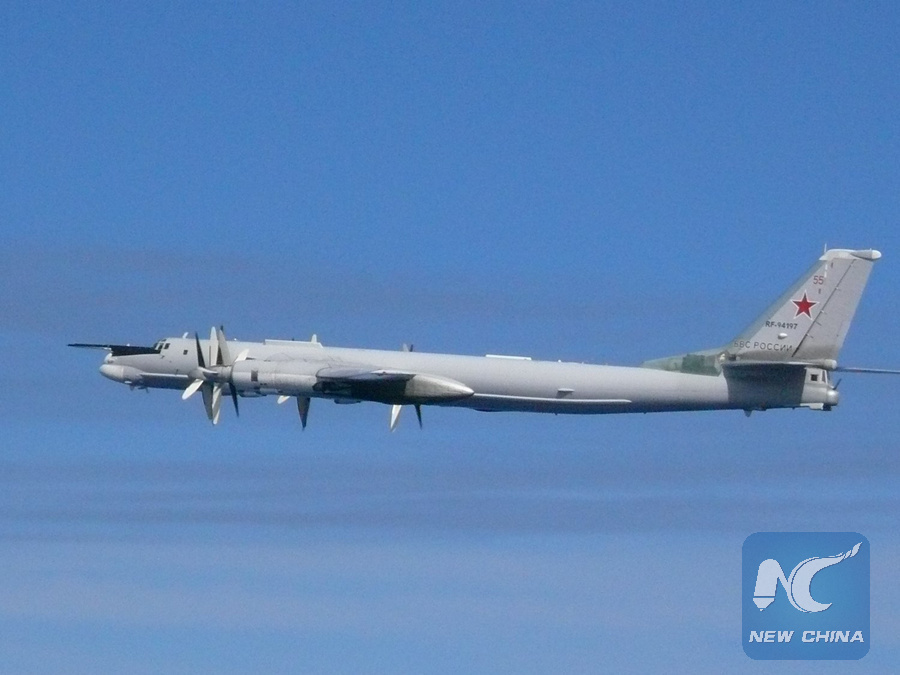
A Russian TU-95 bomber flies over East China Sea in this handout picture taken by Japan Air Self-Defence Force and released by the Joint Staff Office of the Defense Ministry of Japan on July 23, 2019.
MOSCOW, July 23 (Xinhua) -- South Korean military pilots' attempts to expel planes of other countries from the airspace over the neutral waters of the Sea of Japan and the East China Sea are "unlawful and dangerous," and should be seen as "aerial hooliganism," the Russian Defense Ministry said Tuesday.
"In the area of the disputed islands, they made dangerous maneuvers, crossing the course of the aviation group and creating a threat to flight safety," said Sergei Kobylash, commander of the Russian aerospace forces' long-range aviation, according to a ministry statement.
He stressed that the Russian crews strictly stuck to the designated flight mode, adding that recorded data showed no violation of "neither South Korea's nor Japan's airspace", with the closest aircraft staying at a distance of more than 25 km from the disputed islands.
"Therefore, the actions of the South Korean crews should be regarded as aerial hooliganism," Kobylash said.
Earlier in the day, local media cited Seoul's Joint Chiefs of Staff as saying that South Korea's fighter jets fired warning shots at a Russian military aircraft that violated South Korea's airspace above the eastern waters.
The Russian bomber reportedly trespassed in territorial skies near the South Korea-controlled islands of Dokdo (called Takeshima in Japan), a disputed territory between South Korea and Japan, marking the first time that a Russian military airplane violated "the airspace of South Korea."
The Russian Defense Ministry denied reports that its strategic Tu-95 MS missile carriers had violated South Korean airspace and had been met with warning shots from South Korean warplanes.
Kobylash noted that crews of the South Korean planes acted "unprofessionally" without making radio contact with Russian crews on the international frequency or making signals to warn of a possible violation of the state border in airspace.
He dismissed again information about the supposedly warning fire from the South Korean fighters as such a threat would have triggered "immediate adequate response" by the Russian pilots.
It was not the first time when South Korean pilots had unsuccessfully tried to prevent flights of Russian military aircraft over the neutral waters of the Sea of Japan, an airspace South Korea referred to as its air defense identification zone, according to the Russian ministry, saying the zone was "arbitrarily established by South Korea."
Such zones are not stipulated by international rules and are not recognized by Russia, which has repeatedly informed South Korea about it through various channels, the Russian ministry said.

